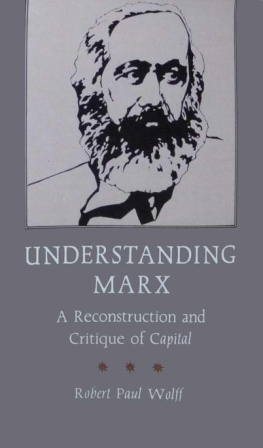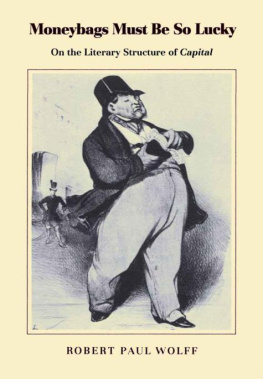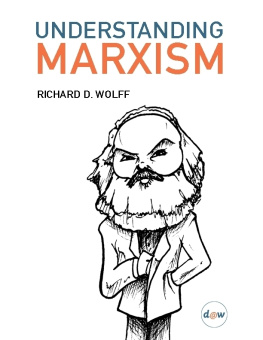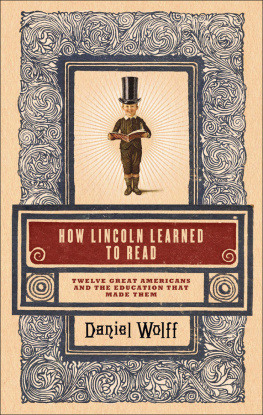Wolff - Why Read Marx Today?
Here you can read online Wolff - Why Read Marx Today? full text of the book (entire story) in english for free. Download pdf and epub, get meaning, cover and reviews about this ebook. year: 2002, publisher: Oxford University Press, genre: Religion. Description of the work, (preface) as well as reviews are available. Best literature library LitArk.com created for fans of good reading and offers a wide selection of genres:
Romance novel
Science fiction
Adventure
Detective
Science
History
Home and family
Prose
Art
Politics
Computer
Non-fiction
Religion
Business
Children
Humor
Choose a favorite category and find really read worthwhile books. Enjoy immersion in the world of imagination, feel the emotions of the characters or learn something new for yourself, make an fascinating discovery.

Why Read Marx Today?: summary, description and annotation
We offer to read an annotation, description, summary or preface (depends on what the author of the book "Why Read Marx Today?" wrote himself). If you haven't found the necessary information about the book — write in the comments, we will try to find it.
Wolff: author's other books
Who wrote Why Read Marx Today?? Find out the surname, the name of the author of the book and a list of all author's works by series.
Why Read Marx Today? — read online for free the complete book (whole text) full work
Below is the text of the book, divided by pages. System saving the place of the last page read, allows you to conveniently read the book "Why Read Marx Today?" online for free, without having to search again every time where you left off. Put a bookmark, and you can go to the page where you finished reading at any time.
Font size:
Interval:
Bookmark:
Why Read Marx Today?
Jonathan Wolff is Professor of Philosophy at University College London. He is author of An Introduction to Political Philosophy (OUP) and Robert Nozick: Property, Justice and the Minimal State (Polity), and co-editor of Political Thought in the Oxford Readers series.
Jonathan Wolff


Great Clarendon Street, Oxford ox2 6 DP
Oxford University Press is a department of the University of Oxford.
It furthers the Universitys objective of excellence in research, scholarship,
and education by publishing worldwide in
Oxford New York
Auckland Bangkok Buenos Aires Cape Town Chennai
Dar es Salaam Delhi Hong Kong Istanbul Karachi Kolkata
Kuala Lumpur Madrid Melbourne Mexico City Mumbai Nairobi
So Paulo Shanghai Singapore Taipei Tokyo Toronto
with an associated company in Berlin
Oxford is a registered trade mark of Oxford University Press
in the UK and in certain other countries
Published in the United States
by Oxford University Press Inc., New York
Jonathan Wolff 2002
The moral rights of the author have been asserted
Database right Oxford University Press (maker)
First published in hardback 2002
First published in paperback 2003
All rights reserved. No part of this publication may be reproduced,
stored in a retrieval system, or transmitted, in any form or by any means,
without the prior permission in writing of Oxford University Press,
or as expressly permitted by law, or under terms agreed with the appropriate
reprographics rights organizations. Enquiries concerning reproduction
outside the scope of the above should be sent to the Rights Department,
Oxford University Press, at the address above
You must not circulate this book in any other binding or cover
and you must impose this same condition on any acquirer
British Library Cataloguing in Publication Data
Data available
Library of Congress Cataloging in Publication Data
Data available
ISBN 0192805053
1 3 5 7 9 10 8 6 4 2
Typeset in New Baskerville
by RefineCatch Limited, Bungay, Suffolk
Printed and bound by Clays Ltd, St Ives plc
In 1986 I took up a lectureship in philosophy at University College London. The duties of the post included lecturing on Marxism, within a course initially set up by my teacher, Jerry Cohen, who had recently left UCL to take up a Chair in Oxford. I enjoyed reading and thinking about Marx, and so was happy enough to take this on. But I also thought that the course probably would not survive for long. I could understand that students would like to be taught Marxism by the leading Analytical Marxist of the day, but I thought that with Jerrys departure interest in Marxism would wither away.
Well, I was wrong. The teaching of Marxism in the Philosophy Department at UCL survived Jerrys move. It also survived the fall of the Berlin Wall and has flourished in the face of the alleged deradicalization and careerism of todays students. The course is now more popular than ever, especially with US students in London for their Junior Year Abroad. This bookwritten at the suggestion and invitation of Shelley Coxis based on the lectures that I have delivered over the years.
The very first draft of the book was written not in a villa overlooking Lake Como, or in a prestigious US Institute of Advanced Research, but on the London Underground: specifically the Northern and Victoria lines, scribbled into little notebooks as the trains juddered between non-station stops. I can recommend the practice: it is liberating to have a reason to want the train to be delayed. And it is a want very often satisfied. Several friends read much later versions of the text, and I am particularly grateful to Terrell Carver, Jerry Cohen, Jon Pike, and Rajeev Sehgal, all of whom made valuable written comments and saved me from embarrassing errors. Writing this book has rekindled my appetite for going back again to read more and more of Marxs writings (a never-ending task). I hope that those reading this book will understand why.
In 1907 the Italian philosopher Benedetto Croce asked What is living and what is dead in the thought of Hegel? Every decade or so, someone or other gets the idea of asking the same question about Marx. Well, now it is our turn. At the start of the twenty-first century how much, if anything, will escape the funeral pyre?
My answer is: more than one might think. In recent years we could be forgiven for assuming that Marx has nothing left to say to us. Marxist regimes have failed miserably, and with them, it seemed, all reason to take Marx seriously. The fall of the Berlin Wall had enormous symbolic resonance: it was often taken to be the fall of Marxism as such, as well as of Marxist politics and economics.
But in celebrating the end of the evil empire we forgot that the thinkers who inspired Eastern European communism were not evil people. On the contrary, they saw themselves as our saviours. At huge personal cost they sought to liberate humanity from what they believed to be an inhumane economic and social system: capitalism. They were fired both by a vision of how society ought to be and an account of what was wrong with existing, bourgeois, society. The positive vision turned into a nightmare (although, as we shall see, whether communist regimes were an authentic interpretation of Marxs ideas is another question). But the failure of communism does not mean that all is well with Western, liberal, democratic capitalism. And it is Marx, above all, who still provides us with the sharpest tools with which to criticize existing society.
We can think of Marx as the great-grandfather of todays anti-capitalist movement. Of course, much has changed. For example, Marx seems to have assumed that natural resources were inexhaustible, and thus he has a much more limited ecological perspective than one would expect today. But on the other hand Marx portrays a world in which the capitalist market comes to permeate society, putting a price on everything and crowding out non-economic forms of value. Businesses grow ever-larger, becoming more ruthless and exploitativemore vampire-likein the process. Under capitalism progress comes at a high price. As Marx himself put the point in 1856in a speech at the anniversary of the Peoples Paper:
In our day everything seems pregnant with its contrary. Machinery, gifted with the wonderful power of shortening and fructifying human labour, we behold starving and overworking it. The new-fangled sources of wealth, by some strange weird spell, are turned into sources of want. The victories of art seem bought by the loss of character. At the same pace that mankind masters nature, man seems to become enslaved to other men or to his own infamy. Even the pure light of science seems unable to shine except on the dark background of ignorance. All our invention and progress seems to result in endowing material forces with intellectual life, and in stultifying human life into a material force. (M. 368) (For an explanation of the referencing system adopted here, see Guide to References and Further Reading.)
These, and many other, points will be explored in more detail over the course of this book. Todays critics of capitalism will still find Marxs writings to be a rich vein of source material.
Now it is one thing to be able to identify the faults in capitalism, but is quite another to be able to say what we should do instead. (It is reported that one demonstrator at a recent anti-capitalist demonstration held up a banner reading Replace Capitalism with Something Nice.) Marx the creative thinker was hugely optimistic, sometimes mistaken in his arguments and assumptions, often infuriatingly vague about the details, and in consequence has little to tell us now about how to arrange society. But his criticisms of late nineteenth-century society have enormous relevance even in the early twenty-first century. We may have no confidence in his solutions, but this does not mean that the problems he identifies are not acute. This, at least, is what I shall argue here.
Next pageFont size:
Interval:
Bookmark:
Similar books «Why Read Marx Today?»
Look at similar books to Why Read Marx Today?. We have selected literature similar in name and meaning in the hope of providing readers with more options to find new, interesting, not yet read works.
Discussion, reviews of the book Why Read Marx Today? and just readers' own opinions. Leave your comments, write what you think about the work, its meaning or the main characters. Specify what exactly you liked and what you didn't like, and why you think so.














